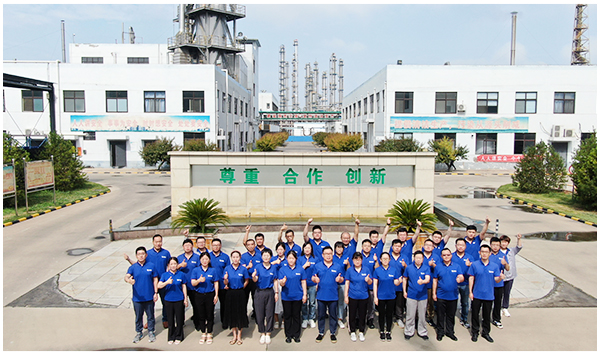
News
Aug . 06, 2024 08:32 Back to list
Exploring the Role of Phosphate Chelators in Enhancing Nutrient Availability in Soil Systems
The Role of Phosphate Chelators in Environmental and Nutritional Sciences
Phosphates are essential nutrients that play a critical role in various biological processes, including energy metabolism, cell signaling, and the structural integrity of DNA and RNA. However, excessive phosphate levels, particularly in aquatic ecosystems, can lead to detrimental effects such as algal blooms and eutrophication. To mitigate these challenges, phosphate chelators have emerged as an effective solution, specifically in environmental management and nutritional applications.
Understanding Phosphate Chelators
Phosphate chelators are compounds that bind to phosphate ions, forming stable complexes that can modulate the availability of phosphates in a given environment. These chelators can be naturally occurring or synthetic, and their primary function is to reduce free phosphate concentration, thereby limiting its accessibility to organisms that could otherwise contribute to its overabundance.
In aquatic environments, excessive phosphate loading—often due to agricultural runoff, wastewater discharge, and urban development—can trigger harmful algal blooms. These blooms not only deplete oxygen levels in the water, leading to hypoxia and threatening fish and aquatic life but also release toxins that can contaminate drinking water sources. Implementing phosphate chelators in these ecosystems helps to sequester excess phosphates, thereby minimizing their negative impacts on water quality and biodiversity.
Applications in Environmental Remediation
The application of phosphate chelators in environmental remediation illustrates their significance in maintaining ecological balance. Several studies have shown that chelating agents such as lanthanum salts and polyacrylic acids can effectively bind to phosphate ions in polluted waters. For instance, lanthanum phosphate precipitation has emerged as a promising method, effectively reducing soluble reactive phosphorus levels in eutrophic lakes.
phosphate chelator

Additionally, phosphate chelation can be integrated into wastewater treatment processes. By incorporating chelating agents into treatment plants, facilities can enhance phosphorus removal efficiencies, thereby meeting stricter regulatory standards and protecting downstream water bodies from phosphate pollution.
Nutritional Implications
Beyond environmental benefits, phosphate chelators also hold significant potential in nutritional sciences, especially concerning livestock and aquaculture. In animal nutrition, excessive phosphate levels can contribute to environmental pollution from manure, while inadequate phosphate can impair growth and health. By utilizing phosphate chelators, feed formulations can be optimized to balance phosphate availability, ensuring that animals receive adequate nutrients while minimizing environmental impacts.
Furthermore, phosphate chelators can enhance the bioavailability of essential minerals in animal diets. By binding to phosphate, these chelators can facilitate a more efficient uptake of critical nutrients such as calcium and magnesium, which are vital for various physiological functions.
Conclusion
Phosphate chelators serve a dual purpose in both environmental and nutritional contexts. Their ability to mitigate adverse effects of excessive phosphates in aquatic ecosystems highlights their utility in promoting healthier environments, while their role in optimizing nutrient availability in animal feeds underscores their importance in sustainable agriculture. As the challenges associated with phosphate management continue to rise, ongoing research and innovation in phosphate chelation will be pivotal for developing effective strategies to ensure ecological health and food security. Embracing these technologies could lead to more sustainable practices that benefit both our environment and our agricultural systems.
-
Polyaspartic Acid Salts in Agricultural Fertilizers: A Sustainable Solution
NewsJul.21,2025
-
OEM Chelating Agent Preservative Supplier & Manufacturer High-Quality Customized Solutions
NewsJul.08,2025
-
OEM Potassium Chelating Agent Manufacturer - Custom Potassium Oxalate & Citrate Solutions
NewsJul.08,2025
-
OEM Pentasodium DTPA Chelating Agent Supplier & Manufacturer High Purity & Cost-Effective Solutions
NewsJul.08,2025
-
High-Efficiency Chelated Trace Elements Fertilizer Bulk Supplier & Manufacturer Quotes
NewsJul.07,2025
-
High Quality K Formation for a Chelating Agent – Reliable Manufacturer & Supplier
NewsJul.07,2025
